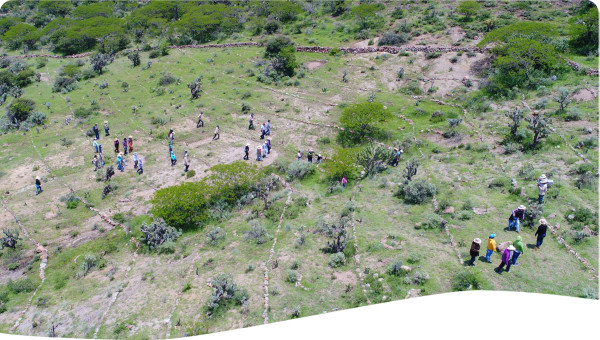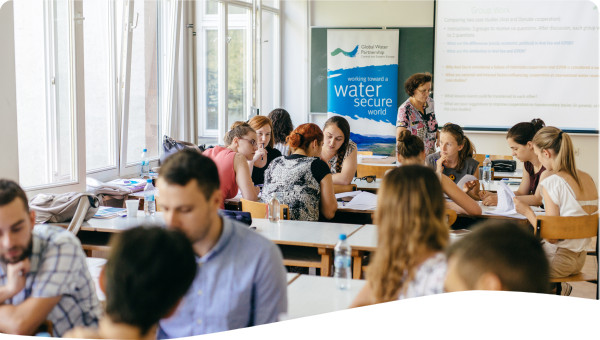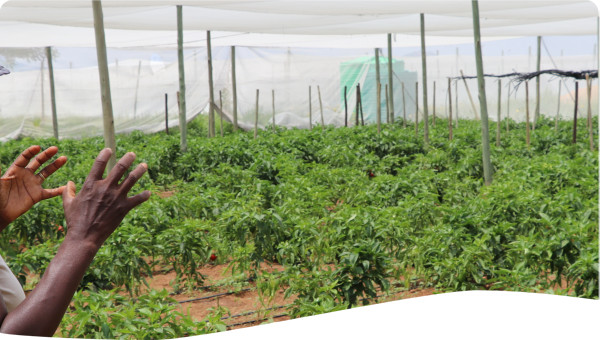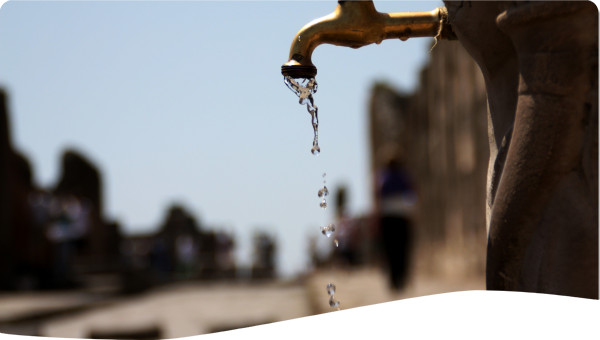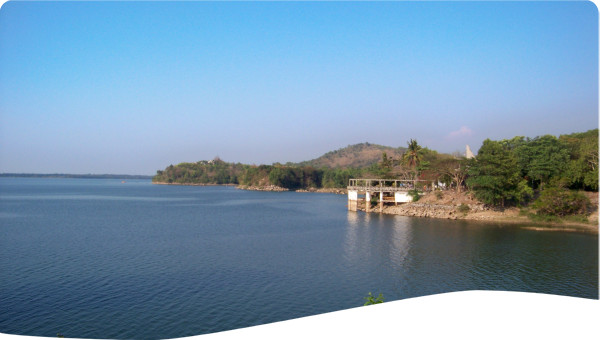In Turkey, operations and maintenance for irrigation systems was highly centralised, but this imposed an increasing institutional and financial burden on the government. Action has consequently been taken to transfer irrigation management to Water User Associations. The key insight from this case is that legal reforms should accompany institutional changes to enable full benefits to be gained.
As in the rest of the Mediterranean, the agricultural sector is the major water consumer, averaging more than 70% of the total water consumption. Water scarcity has been a major concern since 1960’s and efforts have been made to better manage and ensure the efficient use of water for sustainable agricultural development.
Up to 2001, irrigation infrastructure serving 4.4 million ha has been developed mainly by the public sector State Hydraulic Works (DSI) and the General Directorate of Rural Services (GDRS), the two government agencies responsible for water and soil resources development and management in Turkey.
The Constitution stipulates that water is a national good owned by the State, which makes overall allocations to users (the public, farmers, utilities). Water is not seen as a commercial commodity. DSI is the sole institution responsible for the allocation, exploitation and protection of the groundwater resources. There is no umbrella ‘Water Act’ covering all the allocation between sectors and, in particular, surface waters, although in practice, surface water allocation is administered by DSI, based on the requirements of different sectors. The local community makes a request for water allocation, eg the municipality for domestic water supply, water users’ associations for irrigation water.
Irrigation schemes developed by the Government can be managed either directly through the Central Government, or by local authorities and Water Users Organizations. Up to the early 1980s, operations and maintenance for irrigation systems was highly centralised, but this was imposing an increasing institutional and financial burden on the government. Contributing factors were: very low ratio of billing and collection rates or no collection at all; very high water consumption, even wastage; no cost recovery for investment; and no local interest by the farmers to protect the infrastructure. Although some small irrigation schemes had been transferred to users over the years, the pace of change was slow. Pressures were mounting and then in 1986, the World Bank initiated the participatory process and establishment of water user associations as a prerequisite for a loan allocation to Turkey.
After 1993, an accelerated process of handing irrigation O&M over to Water User Associations has been undertaken. A combination of growing awareness by government of the difficulties encountered in the management of irrigation systems by central agencies, and persuasion by the World Bank, led the decision makers to adopt a new system of accelerated transfer.
Following national working group meetings in 1993, DSI’s policy shifted from limited transfer of small schemes to larger ones. With World Bank support, DSI sent more than 50 senior officials to USA and in particular to Mexico in 1993 and in 1994 to investigate the technical, legal and institutional aspects of the transfer of irrigation systems. These visits have had a substantial effect in further encouraging DSI’s staff to pursue accelerated transfer. Overall, 2.4 million hectares are to be transferred. Starting from 1993, DSI took the decision to launch a pilot program of accelerated transfer where water user groups were already existing and operating efficiently.
Four provinces, namely Antalya, Adana, Konya and Izmir, were selected for the pilot programs of accelerated transfer mainly because the officials of these provinces had shown interest and dedication and the farmers were more receptive in these provinces. The transfer was supported by enhanced internal training including seminars and workshops. A friendly competition among various regions in promoting successful transfer was another contributing factor to the process.
A key aim of introducing PIM was to increase farmers’ sense of ownership and responsibility for irrigation facilities. Farmers account for 45% of employment in Turkey, yet before the introduction of a more participatory process, they had neither rights nor responsibilities in the management of irrigation, for example in setting the water tariff, the election of managers or in the decision-making process in general. The introduction of PIM created the sense of ownership by farmers which led to protect the facilities and improve the O&M. Another important aim was also to decrease O&M costs to the government – since these costs are now borne through the farmers and WUAs. O&M savings are now transferred to investment in the sector.
They 'full transfer' type has been preferred in practice. In Turkey, different types of water user organizations exist: the water user associations, municipalities, village authorities and cooperatives. Among these, it has been experienced that the best model of transfer is the water user associations.
Administrative staff includes the president, a general secretary, an accountant as ruling staff supported and supervised by the executive board and the general assembly.
DSI continues with monitoring and evaluation of the O&M performance of schemes. DSI keeps the limited responsibility of advisory role in financial, administrative and technical issues at the water users organizations once the facilities are handed over to them.
In Turkey, the WUOs have to a very large extent demonstrated their ability to operate and maintain the facilities satisfactorily by recruiting the required staff, purchasing urgently transportation and communication equipment, assessing, and collecting water fees, and improving water distribution at a cost generally less than the rate set by DSI. The success relies mainly on the principles of decentralized management performed by the users where consensus and consciousness of sharing responsibility among various stakeholders are the key issue for a better water management which is undoubtedly a must for sustainable development of the agricultural sector.
The result of the pilot study where DSI engineers played the role of promoters and interacted very closely with the local people, municipal councils and chairmen was successful in two respects:
- The engineers realized that they would not loose their job as a result of transfer but on the contrary, they would have an important role after the transfer to assist the local people.
- The system was operated more efficiently by the Water User Associations than by the state (decrease in O&M costs for the state and increase in the collection rate in the WUAs, in comparison with the state run system).
Overall, the transfer from the government to users is thought to have proved satisfactory and has highlighted the sustainability of the participatory irrigation management (PIM) and the decentralized approach of the water user organizations (WUA) model.
The recovery rate for O&M costs increased from less than 40% to more than 80% after the facilities had been handed over to water users’ organisations.
In addition, water overuse and consequent negative environmental impacts (e.g. salinity) have gradually decreased. The irrigation program that was a “government program with assistance of the farmers” became “a farmer program with assistance of the government”.
The case illustrates the role of participation and institutional reform in agricultural water use and illustrates how the reform process can help water allocation in areas where there is competition for water between several economic sectors (agriculture, tourism, municipal water supply).
However, the reform has not been accompanied by appropriate legal reform which has caused some problems in investment and purchase of equipment. Furthermore, while water users associations must raise revenues from tariffs, the lack of legal basis has meant that incentive structures are weak.
Farmers and WUOs need continuing support and training to after the transfer to ensure sustainability.
Legal reforms should accompany institutional changes to enable full benefits to be gained.
Political will in government together with financial support are important for achieving major institutional change.
 Case studies
Case studies